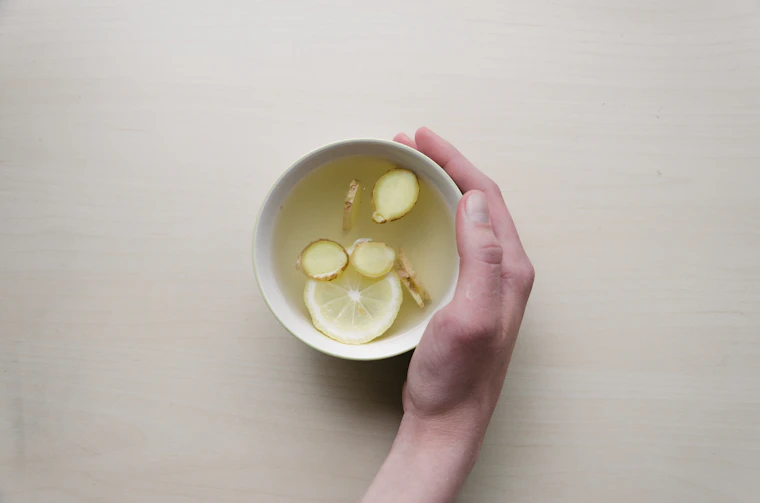Macular degeneration is a leading cause of vision loss, particularly in older adults. It’s a condition that affects the central part of the retina, known as the macula, which is responsible for sharp, central vision. Living with macular degeneration can significantly impact one's quality of life, making daily activities like reading, driving, and recognizing faces challenging. However, there is promising research indicating that certain foods can play a role in managing and potentially slowing the progression of this condition. By incorporating these foods into your diet, you may be able to support eye health and combat the effects of macular degeneration.
Understanding Macular Degeneration
Before diving into the specific foods that can benefit those with macular degeneration, it's essential to understand what the condition entails. Macular degeneration, or age-related macular degeneration (AMD), comes in two forms: dry and wet. The dry form is more common and progresses slowly, while the wet form is less common but more severe, leading to rapid vision loss.
The exact cause of macular degeneration is not entirely understood, but it is believed to be a combination of genetic factors, lifestyle choices, and age-related changes. The condition primarily affects people over the age of 50, with the risk increasing as one gets older. Unfortunately, there is no cure for macular degeneration, but certain lifestyle changes, including diet, can help manage the symptoms and slow its progression.
The Role of Diet in Eye Health
Research has shown that diet plays a crucial role in maintaining eye health, particularly in preventing or managing macular degeneration. Nutrients like antioxidants, vitamins, and minerals found in certain foods can protect the eyes from oxidative stress, inflammation, and other factors that contribute to the development and progression of AMD.
Two Foods That Can Help Combat Macular Degeneration
Incorporating specific nutrient-rich foods into your diet can provide significant benefits for your eye health, especially when it comes to managing macular degeneration. Here are two foods that have shown promise in supporting the health of your eyes and potentially slowing the progression of this condition.
1. Leafy Green Vegetables: Spinach and Kale
Leafy green vegetables, particularly spinach and kale, are among the most potent foods for eye health. These vegetables are packed with lutein and zeaxanthin, two powerful antioxidants that are found in high concentrations in the macula of the eye. Lutein and zeaxanthin act as natural sunblock for the eyes, absorbing harmful blue light and protecting the retinal cells from damage.
Benefits of Spinach and Kale:
- Rich in Lutein and Zeaxanthin: These antioxidants help protect the eyes from oxidative stress, which is a significant factor in the development of macular degeneration.
- Anti-Inflammatory Properties: The anti-inflammatory properties of these greens can reduce inflammation in the eyes, which is linked to the progression of AMD.
- Supports Overall Eye Health: Regular consumption of spinach and kale can help maintain the overall health of your eyes, reducing the risk of various eye conditions.
How to Include Spinach and Kale in Your Diet:
- Add raw spinach or kale to salads.
- Incorporate these greens into smoothies for a nutrient-packed breakfast or snack.
- Sauté spinach or kale with garlic and olive oil as a side dish.
- Use kale in soups or stews for added nutrition.
2. Fatty Fish: Salmon and Mackerel
Fatty fish, such as salmon and mackerel, are excellent sources of omega-3 fatty acids, particularly DHA (docosahexaenoic acid) and EPA (eicosapentaenoic acid). Omega-3 fatty acids are crucial for maintaining the health of the retina and have been shown to reduce the risk of developing advanced macular degeneration.
Benefits of Salmon and Mackerel:
- High in Omega-3 Fatty Acids: Omega-3s play a vital role in maintaining the integrity of the retinal cells and preventing inflammation that can lead to AMD.
- Promotes Healthy Blood Vessels: Omega-3s support healthy blood flow to the retina, reducing the risk of abnormal blood vessel growth that is associated with the wet form of macular degeneration.
- Reduces Inflammation: The anti-inflammatory effects of omega-3 fatty acids can help protect the eyes from conditions that contribute to vision loss.
How to Include Salmon and Mackerel in Your Diet:
- Grill or bake salmon and serve with a side of leafy greens for a nutrient-rich meal.
- Add canned mackerel to salads or sandwiches for a quick and easy source of omega-3s.
- Incorporate smoked salmon into breakfast dishes like omelets or avocado toast.
- Prepare a fish stew with mackerel as the star ingredient.
Additional Tips for Supporting Eye Health
In addition to incorporating these two powerful foods into your diet, there are other steps you can take to support your eye health and manage macular degeneration:
- Maintain a Healthy Weight: Obesity is linked to an increased risk of developing AMD, so maintaining a healthy weight through diet and exercise is important.
- Avoid Smoking: Smoking is a significant risk factor for AMD, so quitting smoking can help protect your vision.
- Manage Blood Pressure: High blood pressure can contribute to the progression of AMD, so it's essential to keep your blood pressure in check.
- Wear Sunglasses: Protect your eyes from harmful UV rays by wearing sunglasses when outdoors.
Conclusion
While there is currently no cure for macular degeneration, taking proactive steps to support your eye health can make a significant difference in managing the condition and slowing its progression. By incorporating nutrient-rich foods like leafy green vegetables and fatty fish into your diet, you can provide your eyes with the essential nutrients they need to stay healthy. Remember, making these dietary changes is just one part of a comprehensive approach to eye care, so be sure to consult with your healthcare provider for personalized advice and treatment options.

